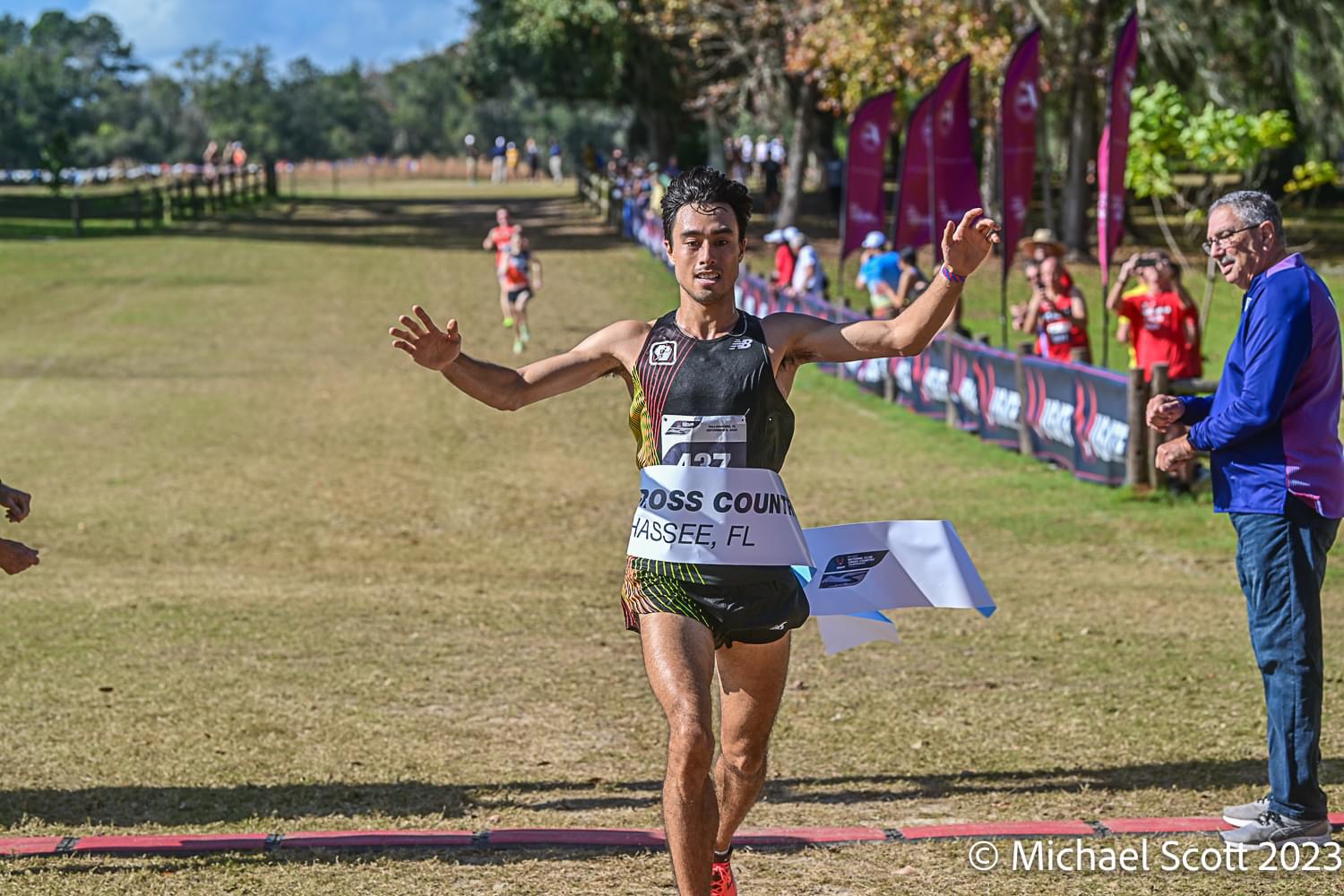Kelly Deegan lives close enough to a park that almost every day, she sees organized sports practices and games happening. She also got a phone call from the Westfield High School administration, asking if three teenagers — who a local resident saw running together — were on her cross country team. She hasn’t seen her runners since March… they weren’t her runners.
That drove home her frustration about the fate of high school cross country during the COVID-19 pandemic.
“You want them to do it, but you also don’t want to be responsible for bad decision making,” Deegan said. “We’re in this limbo where we can’t do what we’re driven to do, which is help kids run.”
And while different school systems restrict team practice opportunities, club sports are flourishing outside of the scholastic system, as Deegan readily sees, serving baseball, softball, basketball, lacrosse, swimming and more.
Most youth track and field programs end around eighth grade, and because distance running already spans three high school seasons, there’s not room for much more instruction or competition. The high school schedule is enough for most runners and coaches.
Clubs
Nova Athletic Club – Loudoun County
Springfield Youth Club – Southern Fairfax County
Pacers Cross Country Club – Inside/around the Beltway
Potomac River Running Cross Country Club – Western Fairfax County
No residency requirement, AAU, club dues and uniform costs total roughly $225
Participation has no bearing on school team
“Plus, you shouldn’t make money off of your athletes on the side, especially if you’re creating a conflict of interest,” said West Springfield coach Chris Pellegrini.
But as Colgan coach Dave Davis is quick to point out, there is no conflict without a high school sports season. With cross country off the calendar locally until at least February, when at least Virginia and Washington, D.C. will try a shortened cross country season, a few clubs are forming in Virginia to tide runners over until their high school teams can return in earnest. So far, four regional clubs are building toward holding a short fall season with a series of races, all under strict guidelines for participation designed to limit the spread of the coronavirus.
“Nothing can ever be 100 percent perfect and safe — that’s an unrealistic demand — but what we can promise is that there are quite a few rules the CDC has for athletic competitions,” said Lake Braddock coach Mike Mangan, who will be coordinating one club.
It will also help sustain interest in cross country and help the sport from being eclipsed by others. In a time when the health climate makes running one of the safest sports, the lack of opportunities could otherwise snuff out interest.
“I am deathly afraid of losing this incoming batch of athletes,” Pellegrini said of the class of 2024. “We had to find some way to offer some more formal training and learning experiences for these new kids and keep them interested because if not, they’re going to go find a sport with a ball and then we’ll be done.”
Pellegrini and a growing number of coaches are partnering to staff these club teams, with any luck pooling their efforts to keep their sport going long enough to eventually resume their old rivalries when their formal seasons someday resume. In the meantime, club participation will not matter when school sports return, and coaches are not holding back on their coaches for their primary teams. These club seasons are meant to provide maintenance workouts.
“I don’t view this as an effort to peak hard in November for the state cross country championships. I’m not looking for my top guy to run 15:20 at Burke Lake this fall — I’d rather have him do it in April if that’s what’s offered,” Pellegrini said. “I am more interested in having (runners) get fit, having them work in groups where they learn how to run with each other from a training standpoint and how to do all of that, and then in a perfect world, if somehow the climate is better later in the year and we’re not just doing virtual school, maybe there is an actual cross country season where we can really go after it.”
Pellegrini, or any coach moonlighting at a club, isn’t guaranteed to be coaching his own athletes. Though proportions vary by county, athletes that Fairfax County coaches direct can’t make up more than one-third of their total, so the clubs will help diffuse those groups and keep coaches in the clear.
Three of the clubs, located inside the Beltway, in southern Fairfax County and in western Fairfax County are starting essentially from scratch. The Nova Athletic Club, which Joan and Marc Hunter ran for years before adding the Loudoun Valley head coaching jobs, will adapt to add more athletes and coaches. The clubs have no residency requirements, so any athlete willing to travel to practice may participate. Davis may work with the Potomac Panthers youth club in lieu of starting a new one. Even more clubs are forming or fortifying around Richmond and Winchester.
The clubs established health and safety protocols for participants. Along with verifying medical forms and temperature checks before practice, coaches will guide no more than 24 athletes, forming smaller teams of their own, all coordinated by colored wristband. Practices will primarily include structured workouts, with distance runs left to runners’ discretions.
“The hard part will be making parents understand that their kid can’t jump from group to group if they get better – they have to be autonomous, self-contained groups,” Pellegrini said. “We could have a situation where we have to shut a group of 25 down if there’s a positive test at some point.
“We can’t have kids trying to sneak into practice who aren’t part of the club. They have to understand how serious these rules are.”
Coaches will wear masks throughout practices and athletes will wear them for stretches, warmups and post-run activities. The running packs will spread out.
“I hope we can handle the numbers,” Joan Hunter said. “We don’t want to do this and then wind up like the Marlins.”
No sharing water bottles or equipment either.
“We’re jumping through hoops to make it happen,” Mangan said.
Races, which coaches envision taking place in late September into October, will lightly reacquaint runners with competition after months off, and will likely divide clubs among several competition sites to keep numbers under state limits.
Challenges thus far have included acquiring permits for practice space — sports taking place off of a rectangular field are hard to book — and the patchwork of parks authorities managing green space can be maddening.
At a mountain resort in North Carolina, nearly a dozen Maryland runners spent July and part of August working the resort, running a few thousand feet of altitude, and most importantly, bonding. While they were there, word came down Montgomery County — no cross country or indoor track. Maryland later postponed the fall and winter sports seasons. That meant for five of them, all members of Northwood’s team, their long preseason just got longer
“I wanted to be optimistic, but I had to be realistic,” Giovanni Reumante said. He’s the coach at Northwood High School and of Project Creek, which has held a variety of training runs and played host to speakers over the past two years.
He’s hoping the foundation the trip build will hold up when his runners got back to Silver Spring, where they can continue training and maybe race some day on a teammate’s family’s property.
Maryland isn’t seeing the same move toward club running, owing in large part to more strict rules governing what coaches can do in-person.
“It’s not really worth it to risk our employment with Montgomery County Public Schools,” said Chad Young, the Bethesda-Chevy Chase coach.
Instead, with the blessing of the school system, the county’s coaches have been discussing setting up a virtual season of sorts, with check-ins with athletes and are developing a loose framework of what the replacement season could entail.
“It could be team building, getting to know each other, offering moral support,” Young said. “For other sports, I don’t know what it would look like, but we could still do our training, set up some time trials and maybe have some speakers, like a sports psychologist or a physical therapist. They’re options that don’t need to be just for one team.”
In D.C., with its patchwork of public and private schools, there is no real consensus, though the DCXC Project has developed a remote training club, D.C. Rise, which offers twice-weekly video workouts. For his Field School runners, coach Jesse Gaylord has set up a series of virtual races, but he has seen the fatigue wear on them as the timeline expands.
“It was one thing to do this for a few weeks, but at their age, it’s hard to see this and understand what it all means,” he said. “We’re trying to keep them focused and provide a little emotional support.”
Back in Virginia, restrictions around school-sponsored sports are slowly lifting, though that doesn’t mean it will be easy to conduct practices, with plenty of rules regarding distancing and procedure.
“I think they were designed to be so strict nobody would try to follow them, but we’re stubborn,” Hunter said of Loudoun County, which allowed short practices in mid-July. “We’ll figure out a way to make it a meaningful practice.”
Without being able to leave school grounds, the Loudoun Valley team spends most of its time focusing on injury prevention, drills and mechanics.
“There’s very little actual running,” Hunter said. “Our veteran kids can do their conditioning on their own but for new kids, conditioning is their practice.”
Hunter set up a grid system to guide the requisite 10 feet of distance between runners, which led to a very quiet first practice, but the mood soon thawed under the hot sun.
Whatever their situation, teams are working toward something, though what that is is not entirely up to them. The Vikings sent their first girls’ team to Nike Cross Nationals last year, where they finished 10th. That meet has already been canceled, and while the Amateur Athletic Union national meet in December is still on for Tallahassee, it remains outside of the season the Virginia High School League hopes to conduct.
Back in Centreville, Deegan is also trying to keep her runners looking ahead, even as the horizon seems farther away as the weeks go on.
“I try to get the kids to use their frustration and anger to get in the best shape they’ve ever been in,” she said. “They can focus on getting enough sleep and developing mental toughness. They can focus on what they can control.”
Recent Stories
Looking for our race calendar? Click here Submit races here or shop local for running gear
James W. Foley Freedom Run
Inspired by the moral courage of freelance journalist James Foley, the mission of the nonprofit Foley Foundation is to secure the freedom of Americans held captive abroad unjustly by terrorist organizations or rogue states, and to promote journalist safety.
The
Kensington 8K Race
Since 1994, the Kensington 8K Race has been a favorite DC area fall race – a fun, fast event with beauty, challenge, and excitement. Run it this year on Saturday, September 21, 2024!
The 8K distance is $39, with a






